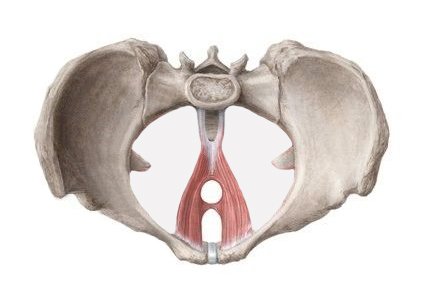Back
Why is my Anus Twitching without any Pain?
By Shannon Strauch, PTA, STMT-1 on 5/9/2024

An anal twitch without pain can have several possible causes, some of which are quite common and not typically a cause for concern. Here are a few reasons why your anus might be twitching:
Muscle Spasms:
Just like any other muscle in your body, the muscles around your anus can experience spasms or twitches. This can happen due to fatigue, dehydration, stress, or even certain dietary factors.Nerve Irritation:
Sometimes, irritation or compression of nerves in the area can lead to twitching sensations. This can be due to sitting for long periods, wearing tight clothing, or engaging in activities that put pressure on the nerves.Stress and Anxiety:
Mental stress and anxiety can manifest physically in various ways, including muscle twitches or spasms. The pelvic floor muscles, including those around the anus, can be affected by stress.Dietary Factors:
Certain foods or drinks, especially those high in caffeine or artificial sweeteners, can sometimes lead to muscle twitches or spasms in different parts of the body, including the anus.Medication Side Effects:
Some medications can cause muscle twitching or spasms as a side effect. If you've recently started a new medication and noticed the twitching coinciding with that, it could be worth discussing with your healthcare provider.Hemorrhoids:
While hemorrhoids are more commonly associated with pain, they can also cause mild twitching or discomfort in some cases.
Anus twitching, especially if it's persistent or bothersome, can sometimes be related to pelvic floor issues. Pelvic floor therapy focuses on the muscles, ligaments, and connective tissues in the pelvic area, which includes the muscles around the anus. Here's how anus twitching might relate to pelvic floor therapy:
Muscle Imbalance:
Anus twitching could be a sign of muscle imbalance or tension in the pelvic floor muscles. Pelvic floor therapy aims to address these imbalances through targeted exercises and techniques to relax and strengthen the muscles as needed.Nerve Irritation:
Twitching can sometimes be caused by nerve irritation or compression, which can also be related to pelvic floor dysfunction. Pelvic floor therapy may include techniques to release tension on the nerves in the pelvic region, which could alleviate twitching sensations.Posture and Alignment:
Poor posture or misalignment in the pelvis can contribute to pelvic floor issues, including twitching sensations. Pelvic floor therapy often involves posture assessment and correction techniques to improve overall pelvic health.Stress and Anxiety:
Pelvic floor therapy can address the impact of stress and anxiety on pelvic floor function. Since mental stress can manifest physically in various ways, including muscle twitches, learning relaxation techniques and stress management strategies through therapy can be beneficial.Comprehensive Evaluation:
If you're experiencing anus twitching along with other pelvic floor symptoms such as urinary or bowel issues, pelvic pain, or sexual dysfunction, a comprehensive evaluation by a pelvic floor therapist or healthcare provider can help identify the underlying causes and tailor a treatment plan to address your specific needs.
If you're considering pelvic floor therapy for anus twitching or related pelvic floor concerns, it's advisable to consult with a pelvic floor therapist or healthcare professional. They can conduct a thorough assessment, discuss your symptoms and concerns, and recommend an appropriate treatment plan, which may include pelvic floor exercises, relaxation techniques, posture correction, and other targeted interventions.
Read More:
How Chronic Pelvic Congestion in Men Contributes to Prostatitis By Shannon Strauch, PTA, STMT-1 on 12/11/2024 How lymphatic issues can cause symptoms of prostatitis Prostatitis and Tight Pelvic Floor Muscles: A Comprehensive Guide By Shannon Strauch, PTA, STMT-1 on 12/10/2024 How a tight pelvic floor can be the reason for prostatitis symptoms
Are you ready to live pain free?
Request An Appointment